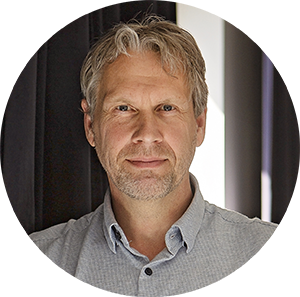Diakonia’s Annual Report 2022
The year 2022 will go down in history as a difficult year in many ways. The situation has deteriorated in terms of human rights, democracy and climate.
But there are also bright spots. COVID-19 restrictions were lifted, communities opened up and we were able to meet each other again. We have been able to continue fighting for a just, equal and sustainable world. And together we have brought about change. Read more about what we have done during the year!
THE YEAR IN NUMBERS
Diakonia's operational expenses
93 percent on work on democracy, human rights and gender equality
6 percent on humanitarian work and disaster relief
1 percent on Information and training
52.4
million Swedish kronor raised
350
partner organizations in Africa, Asia,
Latin America and the Middle East
468
million Swedish kronor in operational
expenses
AFRICA
Africa has been hit hard by conflicts, climate change and rising food prices as a result of the war in Ukraine. In many places, democracy is in decline. Among other things, with the help of a dialogue group, Diakonia has contributed to the calm running of the elections in Kenya. In Burkina Faso, we have helped internally displaced people, fleeing violence and terror, with food and shelter. In Somalia, where climate change has had devastating consequences, we have supported people's access to water.
144
partner organizations
220
million Swedish kronor in
operational expenses
104
employees in the region
Cloth sanitary pads make a difference
Zimbabwe. It is difficult to get hold of sanitary products, so girls and women use whatever is available: newspapers, old rags or cow dung. Diakonia’s partner organization Katswe Sistahood runs sewing clubs at which young women learn to sew cloth sanitary pads. The sewing clubs are more than just workshops. The women also learn about their rights and what help is available if they become victims of violence and abuse.
“This project has changed my life. I have better self-confidence and have learnt to sew and repair my clothes – I could even earn money by selling clothes,” says Tabeth Burukiayo.
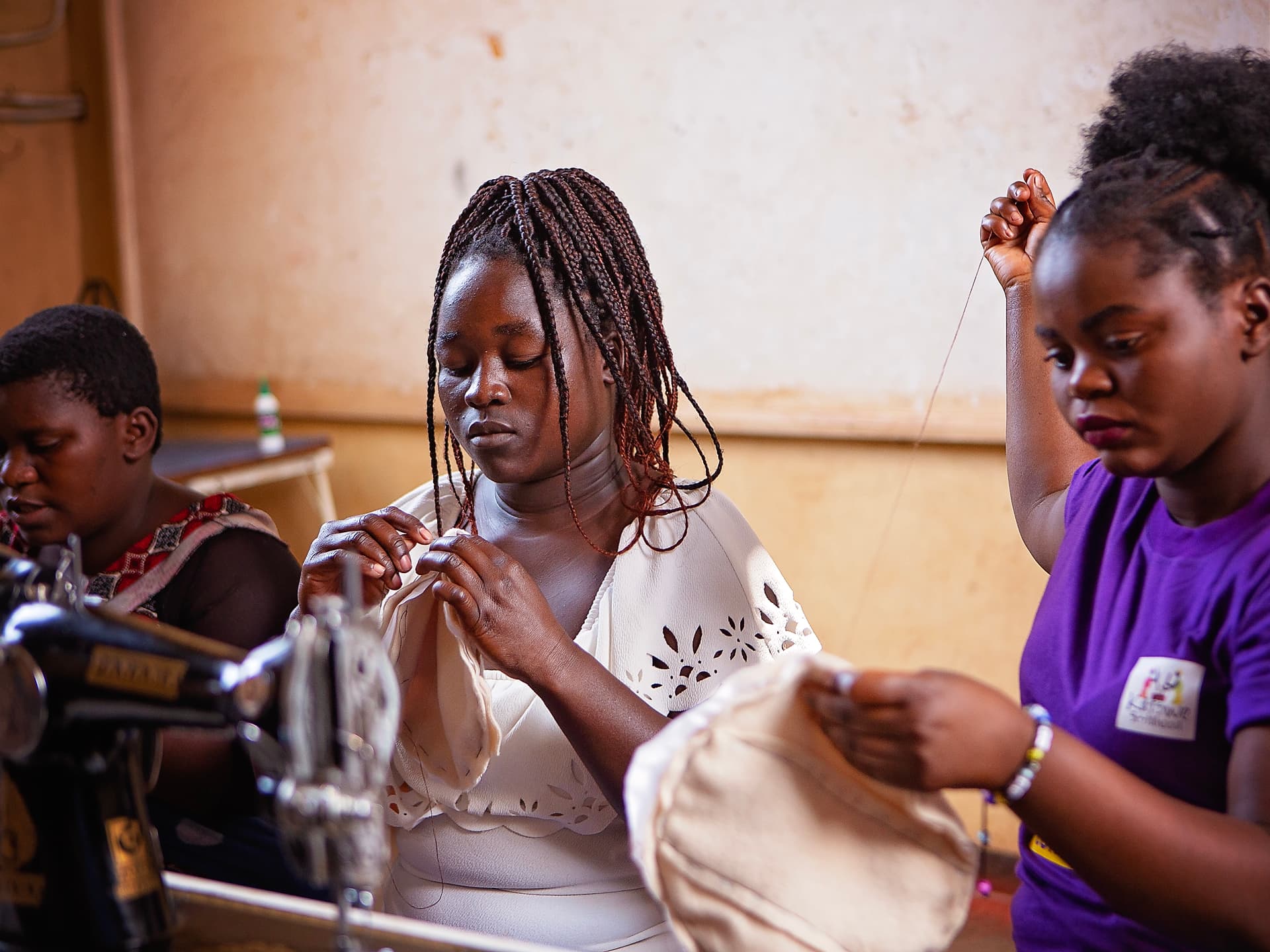
785
785 girls in Zimbabwe received sex education and access to healthcare through our partner organization Katswe Sistahood.
ASIA
A shrinking democratic space, economic crisis and natural disasters as a result of climate change - these are some of the challenges in Asia. Among other things, Diakonia has supported farmers' struggle for the right to land in Cambodia, migrants' rights in Thailand and fought for better working conditions in Bangladesh.
65
partner organizations
65
million Swedish kronor in operational expenses
40
employees in the region
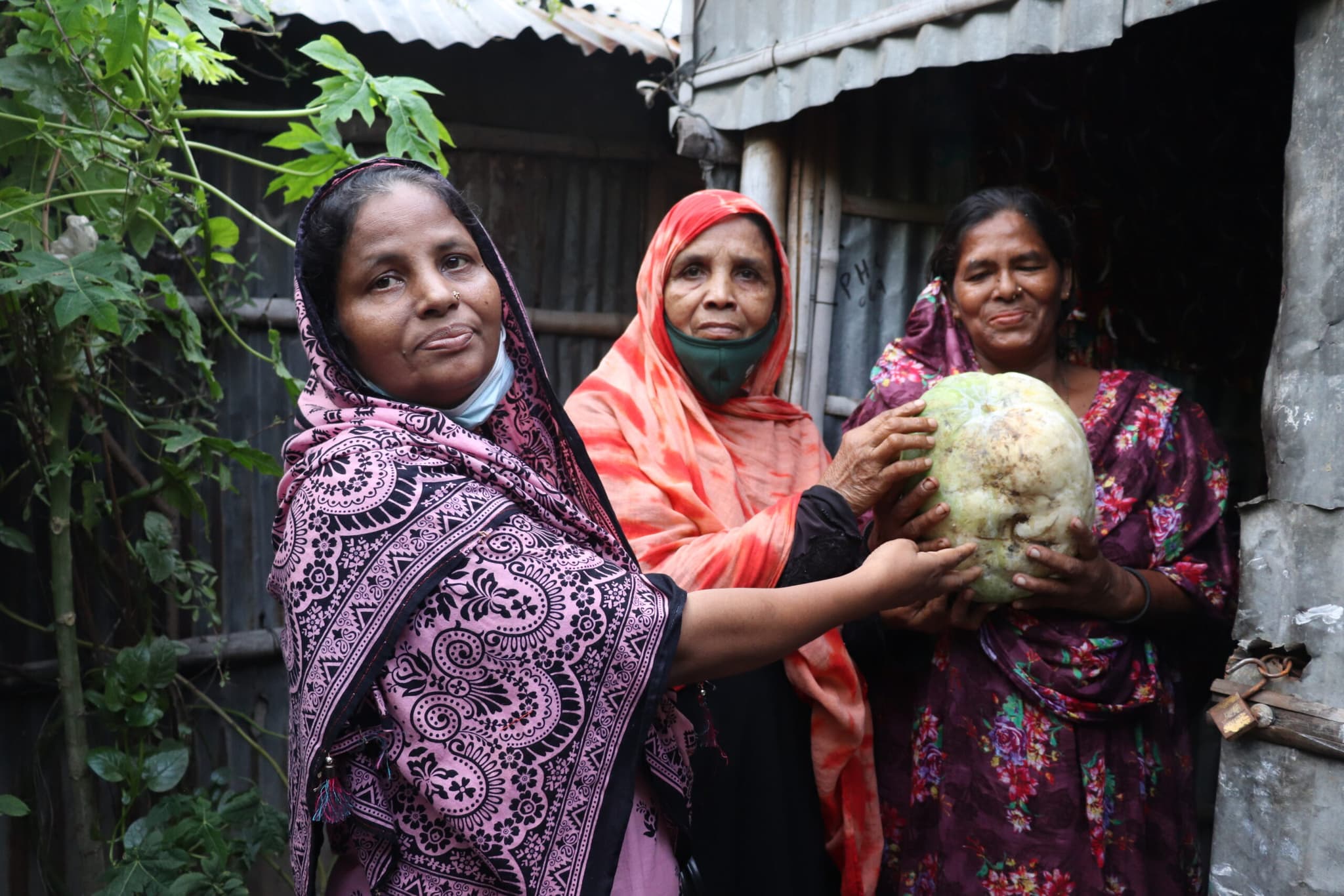
Vegetables on the roof
Bangladesh. Hosneara Begum Rafeza, Ambia Begum and Bilkis have learnt to grow vegetables on rooftops in the slums. They have received seeds and training from Diakonia’s partner organization Bangladesh Resource Center for Indigenous Knowledge, BARCIK. When they have a big harvest, they can supply their own family with vegetables and sell the surplus to earn money. The roof gardens also keep their houses cooler in the summer and warmer in the winter, and neighbourliness has increased thanks to the community project. BARCIK has also organized activities for young people in the slums, self-help groups for women and meetings with government agencies.
483
483 girls in Bangladesh learnt to ride a bicycle thanks to the Bicycle Project.
LATIN AMERICA
2022 was a politically turbulent year in the region. Popular protests were suppressed by police, and in Peru there was an attempted coup d'état. Diakonia was involved in starting an observatory for human rights. We have also supported people in the Andes who are fighting for their water supply, and in hurricane-stricken Honduras we were able to provide emergency aid in the form of food, hygiene products and psychological support where the needs were greatest.
113
partner organizations
105
million Swedish kronor
in operational expenses
61
employees in the region
Hard fight against malnutrition
Guatemala. Malnutrition and extreme poverty have long been problems in Guatemala, a country marked by deep economic divisions and racism. The situation has been exacerbated by COVID-19 restrictions and extreme weather, such as droughts and prolonged rains, due to climate change. Diakonia’s partner organization Fundacion para el desarollo y fortalecimiento de las organizaciones de base, Fundebase, has succeeded in increasing local food production and promoting the consumption of healthy, chemical-free products through soil conservation, water harvesting and seed banks. It has also worked on agricultural diversification and reforestation, and has created markets at which families sell their products.
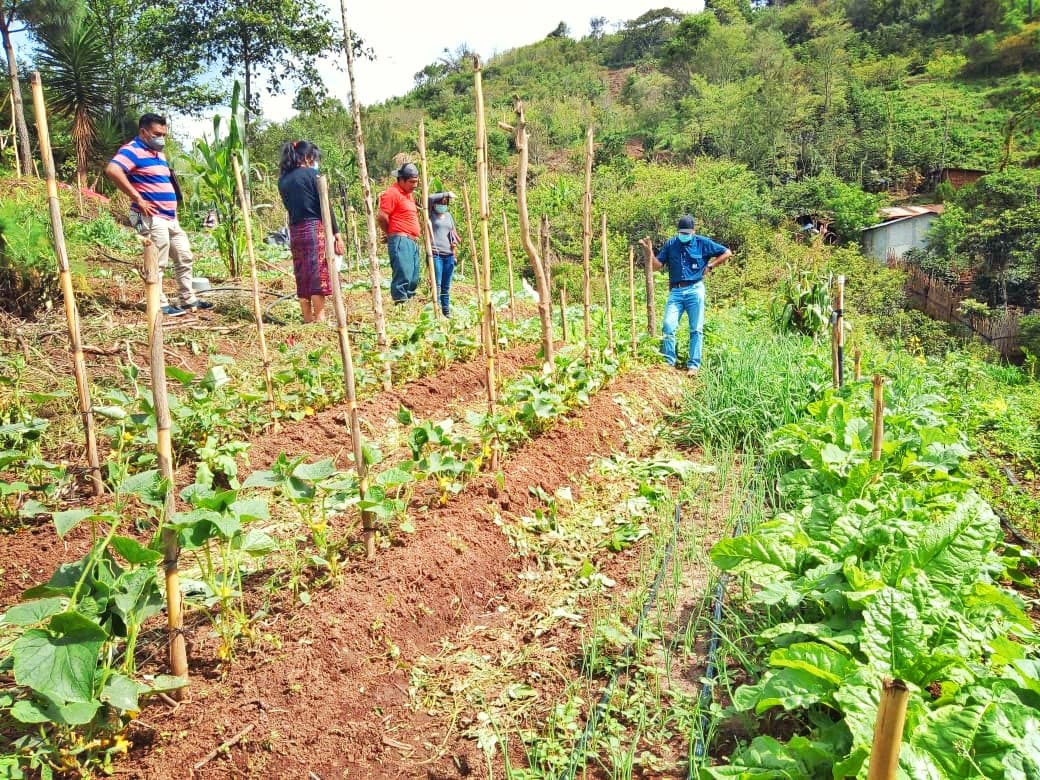
1 238
1 238 LGBTQI+ people in Peru have taken part in the safe space project carried out by our partner LIFS.
MENA
Middle East and North Africa
In the MENA region, poverty has increased as a result of inflation and economic crisis. In many places, the violence has escalated. Through our partner organization in Lebanon, we have provided psychological support to young people living in refugee camps. In Palestine, we have been able to provide a safe place for children who live in an everyday life of violence and oppression.
22
partner organizations
45
million Swedish kronor in
operational expenses
15
employees in the region
Girls can now participate actively at school
Egypt. At Al-Duwair school, girls were never allowed to raise the flag in the morning assembly or be class monitors. Staff and parents were accustomed to traditional gender roles. Girls were expected to keep things tidy and boys were encouraged to participate actively. But in the ‘Future Generations’ project led by Diakonia’s partner organization Eparchial Development Office, EDO, a positive change took place. Adults started to think about gender equality, and since then the roles of children have changed drastically. Teachers and parents are encouraging girls to participate more, working against violence against girls, and now both girls and boys can be class monitors and raise the flag at the start of the school day.
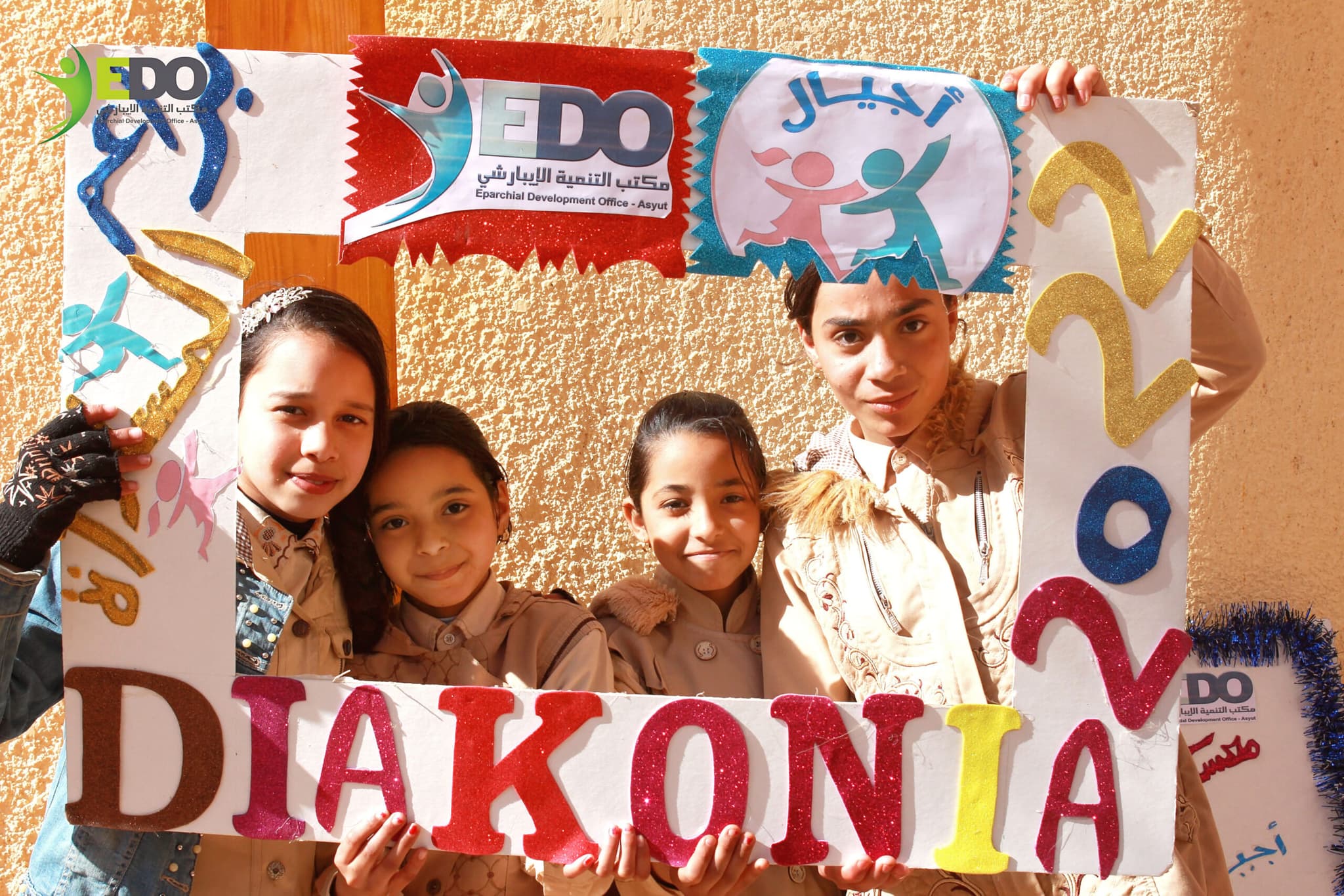
5 126
5 126 children in Palestine took part in the storytelling sessions organized by our partner Tamer.
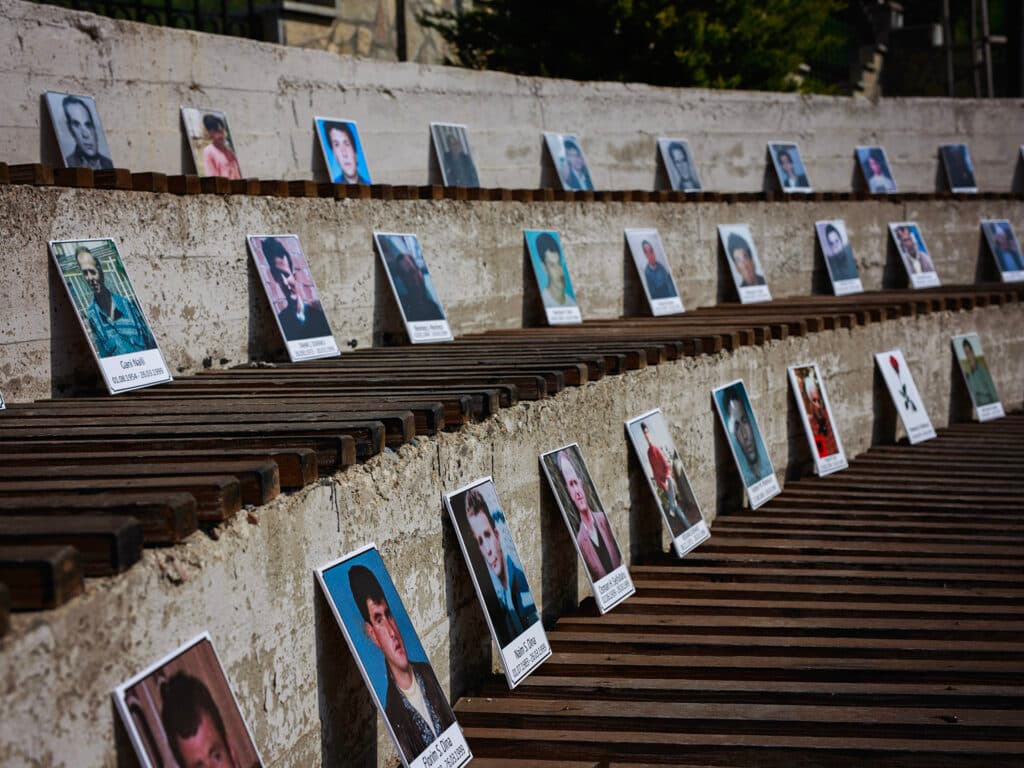
International Humanitarian Law
The Center for International Humanitarian Law, the IHL Centre, is Diakonia’s program to increase respect for international law. During 2022 the centre contributed to the UN Report on the rights of persons with disabilities in the context of armed conflict.
In the Middle East, families of missing persons in Syria have received legal advice, and diplomats in Israel have been trained in international legislation on occupied territories, in cooperation with the European Commission.
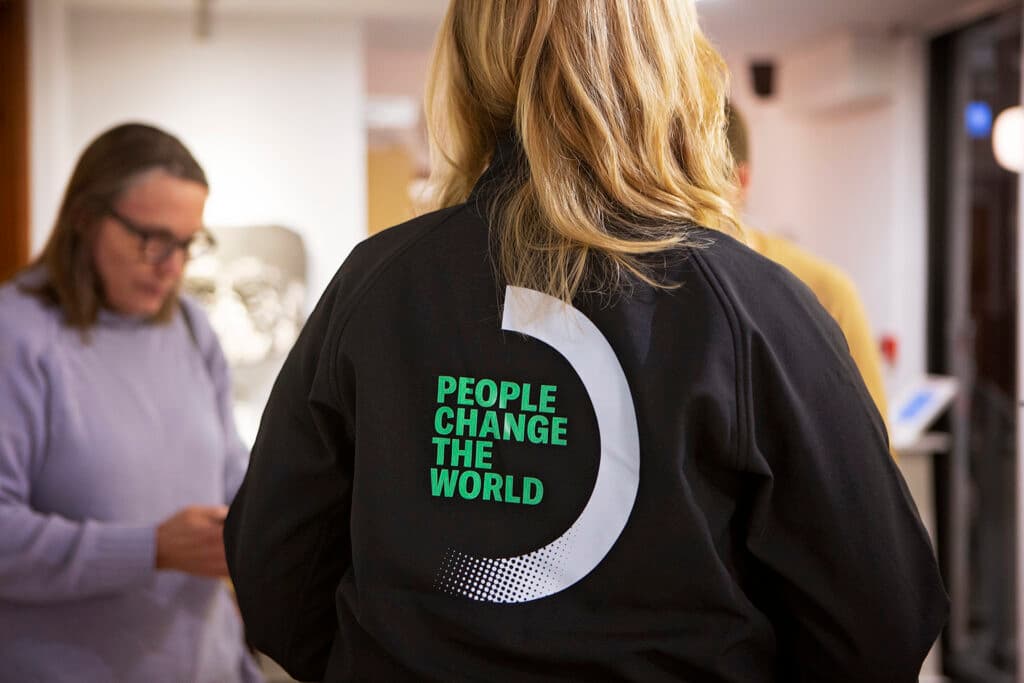
One hundredth for the world
In Sweden 2022 was an election year, which meant that it was a politically intense year. During the year, Diakonia has played an important role in the development cooperation debate. Among other things, we participated in Concord’s campaign Save Development Aid (Rädda biståndet). We informed about the consequences of reduced development aid, gathered signatures and created a quiz with questions about development cooperation.
We also mobilized faith communities, congregations and other Christian-based organizations, in the One Hundredth for the World campaign. Together with Act Svenska Kyrkan, PMU Interlife and the Swedish Mission Council, we wrote debate articles and held political hearings.
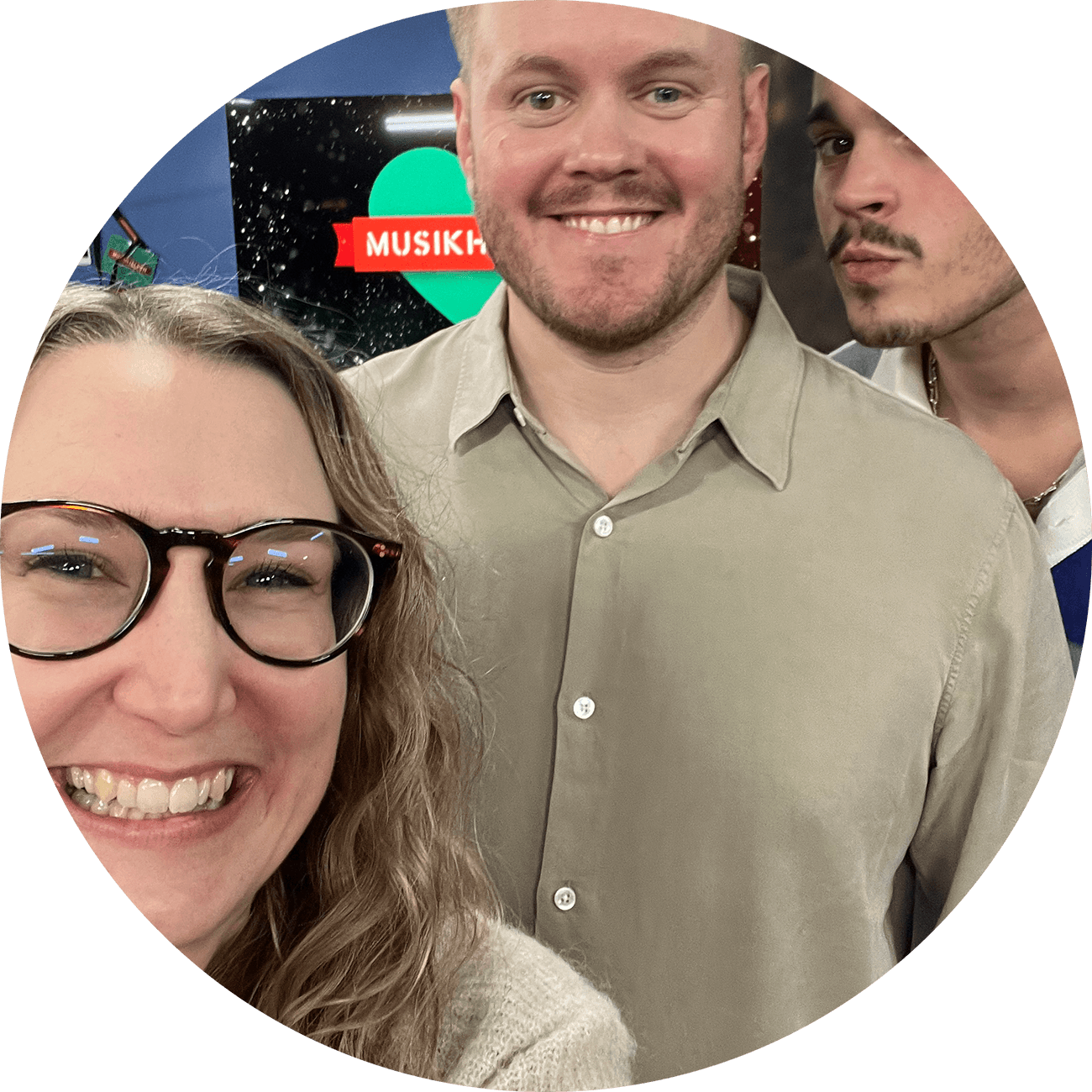
Diakonia in Music Aid (Musikhjälpen)!
The theme for Musikhjälpen 2022 was “For a safer childhood while fleeing from war”. Unni Jonsson, communications officer from Diakonia, took part in the broadcast to talk about the work of our partner Help without Frontiers in Thailand. Every year thousands of migrants arrive in Thailand from Myanmar in search of work and a decent life. Often they bring their whole family with them. In order to provide children with an education tailored to their needs, Diakonia supports schools at which the language of instruction is Burmese. Musikhjälpen raised a total of SEK 54 517 949.
WE DRAW STRENGTH FROM THE STRUGGLE
Many of the conversations I have had this year have centred around how people fighting for gender equality, democracy and development are increasingly at risk of reprisals. Their demands for justice are seen as a threat to privileged groups, their power and resources.
Oppression is therefore often directed at the sharpest tongues, the bravest activists. Those who fight when the land that they have farmed for generations is illegally taken away from them to make way for some mega-project. Or those who refuse to stand by while a factory pollutes their fields. Women who have had enough of being considered second-class citizens, LGBTQI+ people who risk their lives just by going out. These people are everywhere. They are at the core of the struggle, along with all the people who are discriminated against and oppressed, who do not dare to raise their voices themselves. The resistance simmering beneath the surface.
When you see the power of this movement, it is also understandable that it scares many people, especially the rich and privileged, who are afraid of losing their power. Ideologies with values completely contrary to human rights, gender equality and democracy are spreading and gaining ground.
One thing is certain – this battle will not be won by itself. The fact that the people already in the midst of this struggle are fighting is not enough.
All positive forces are now required. Supporting the work of these change makers by supporting Diakonia is, of course, one way to take action. But action can also mean defending these values in our own vicinity. In our own country. Making sure our elected representatives stand up for them.
You should demand justice too! We will only lose if we stop fighting.
Mattias Brunander
Secretary General
